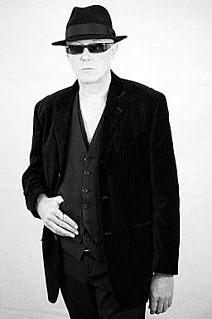A Quote by Sam Shepard
Writing for theatre is certainly different to writing an essay or any other kind of fiction or prose: it's physical. You're also telling a story, but sometimes the story isn't exactly what you intend; maybe you uncover something you had no idea you were going to uncover.
Related Quotes
Writing two stories [in the Thorn and the Blossom] about the same set of events that were complete stories in themselves, but also added up to a larger story. As I was writing them, I kept going back and forth, because something would happen in one story that would have to be reflected in the other story. And yet the same event would also have to be perceived in different ways by Brendan and Evelyn, because they are different people with their own interpretations.
In fiction the narrator is a performance of voice, and it can be any style of voice, but I'm interested in the ways that a voice that knows it's telling a story is actually telling a different story than it intends to. In the way that I can sit here and tell you what I had for breakfast, but I'm really telling you that I'm having an affair, something like that. And I don't think my writing is plain, but I think a lot of my characters are just talking. There is vulnerability there, in that we can start to see through them, we can start to see where they're deceiving themselves.
Horror fiction seems to spawn more dumbass 'rules' than any other kind of writing, and one of the dumbest is the assumed 'requirement' of a twist ending, going all the way back to H.H. Munro. This story is also the result of a long rumination on how stories are sometimes scuttled or diminished by succumbing to such 'rules'.
Essentially, the scripts are not that different. Let's say, in literary terms, it's the difference between writing horizontally and writing vertically. In live television, you wrote much more vertically. You had to probe people because you didn't have money or sets or any of the physical dimensions that film will allow you. So you generally probed people a little bit more. Film writing is much more horizontal. You can insert anything you want: meadows, battlefields, the Taj Mahal, a cast of thousands. But essentially, writing a story is writing a story.
Writing fiction, for me, is a more indirect form of self-exploration than writing verse. When I'm working on a novel I'm moving characters around and I'm thinking about plot and there's a lot of other things going on at the level of structure and story. With a poem, a single idea or line or emotion can sometimes be enough - there's often a sense, in the best poems, of capturing a single instant. Perhaps poems differ from prose in the degree of solace they can offer - by speaking so personally, so directly, about shared experience. A few lines of poetry can provide comfort.
A couple of pieces of advice for the kids who are serious about writing are: first of all, to read everything you can get your hands on so you can become familiar with different forms of writing: fiction, non-fiction, poetry, journalism. That's very important. And also keep a journal. Not so much, because it's good writing practice. Although it is, but more because it's a wonderful source of story starters.
Every good story needs a complication. We learn this fiction-writing fundamental in courses and workshops, by reading a lot or, most painfully, through our own abandoned story drafts. After writing twenty pages about a harmonious family picnic, say, or a well-received rock concert, we discover that a story without a complication flounders, no matter how lovely the prose. A story needs a point of departure, a place from which the character can discover something, transform himself, realize a truth, reject a truth, right a wrong, make a mistake, come to terms.
Any kind of sequence when you have to express physical space and time can be difficult to story-tell because, if you're sitting there watching it like it's a play or something, your mind can track what's going on, or if you're watching an actual fight you can kind of track what's going on, but as soon as you have to start telling the story and tracking for the audience, it becomes much more complicated.
So here I am, sending a two-ounce mouse down into a dungeon with a sewing needle to save a human princess, and I don't know how in the world he's going to do it. I have no idea. That was the first time it occurred to me that writing the story was roughly equivalent to Despereaux's descent into the dungeon. I was tremendously aware of that as I was writing. I thought, "I have to be brave or else I'm not going to be able to tell it." But it's the only way that I can write. If I know what's going to happen, I'm not interested in telling the story.
When I'm writing comics, I'm also visualizing how the story will look on the page - not even always art-wise, but panel-wise, like how a moment will be enhanced dramatically by simply turning a page and getting a reveal. It requires thinking about story in a way I never had to consider when I was writing prose.
It's writing songs within the structure of telling a story, so it becomes a platform for diverse songwriting, for a writing process that's broader than just figuring out a song. You're also dealing with always pushing the story forward, with casting the voices, with the orchestration, with the arrangements.







































